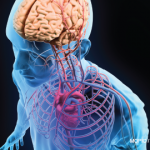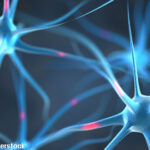Dr. Bruce said this functional connectivity at rest may be an early marker of cognitive dysfunction in patients with lupus but work in this area is continuing.
“I think what we need to do is better elucidate the contribution of inflammation damage, medication and comorbidities to some of these regions of interest” in the brain, he said.
Microglia
Carla Cuda, PhD, assistant professor of medicine-rheumatology at Northwestern University Feinberg School of Medicine, Chicago, said there is growing research into the role of microglia, resident immune cells in the brain, that may help clarify the underlying causes of neuropsychiatric lupus.
“These cells really help to maintain the homeostasis of your brain and the function in your brain” through synaptic pruning, surveillance and phagocytosis, she said. “But some of these functions can go awry, and when that happens, [it] can lead to dyshomeostasis.”
In a neuro-lupus mouse model, Dr. Cuda and colleagues found that microglia are more activated and show increased uptake of synaptic material, compared with wild-type mice. They also found disease-associated microglia (DAM) gene expression in the microglia of this model, and that expression of these DAM signatures was linked with behavioral deficits in young mouse models.3
In other work, researchers have found that the sphingosine 1-phosphate-receptor modulator fingolimod reverses behavioral deficits in another model, possibly because it prevents the transition of microglia into a disease state. When fingolimod is administered, DAM-associated gene expression is suppressed.4
“Together, these discoveries are among the first to implicate DAM as a potentially pathogenic and not protective microglia subset in neuropsychiatric lupus,” says Dr. Cuda.
Thomas Collins is a freelance medical writer based in Florida.
References
- Barraclough M, McKie S, Parker B, et al. Altered cognitive function in systemic lupus erythematosus and associations with inflammation and functional and structural brain changes. Ann Rheum Dis. 2019 Jul;78(7):934–940.
- Barraclough M, McKie S, Parker B, et al. The effects of disease activity, inflammation, depression and cognitive fatigue on resting state fMRI in systemic lupus erythematosus. Rheumatology (Oxford). 2022 Apr 18;61(SI):SI39–SI47.
- Makinde HM, Winter DR, Procissi D, et al. A novel microglia-specific transcriptional signature correlates with behavioral deficits in neuropsychiatric lupus. Front Immunol. 2020 Feb 26:11:230.
- Mike EV, Makinde HM, Der E, et al. Neuropsychiatric systemic lupus erythematosus is dependent on sphingosine-1-phosphate signaling. Front Immunol. 2018 Sep 26:9:2189.

